Gwangtae Park
Energy-efficient Dense DNN Acceleration with Signed Bit-slice Architecture
Mar 15, 2022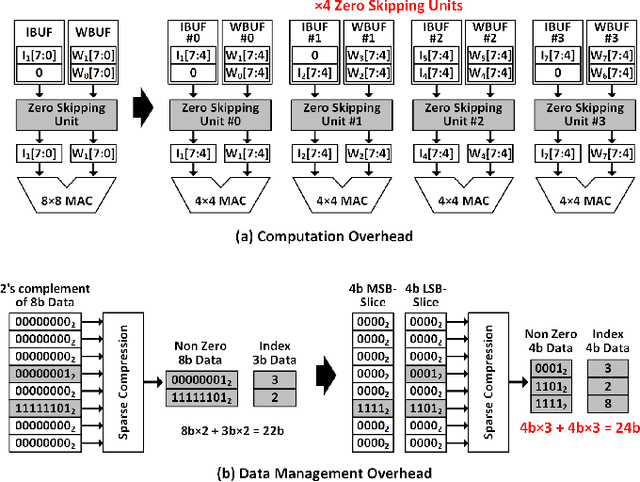
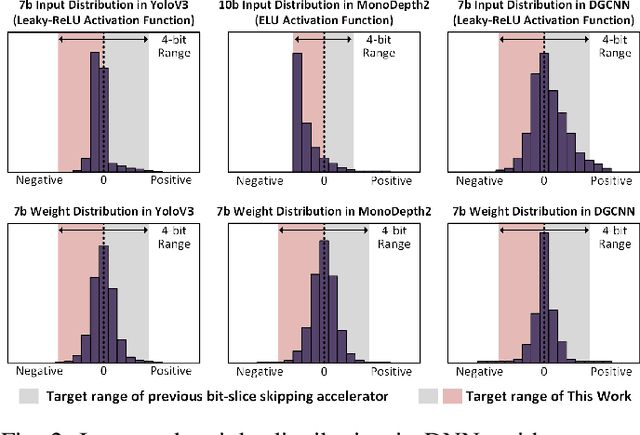
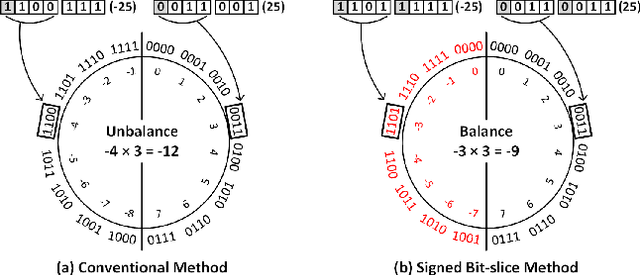
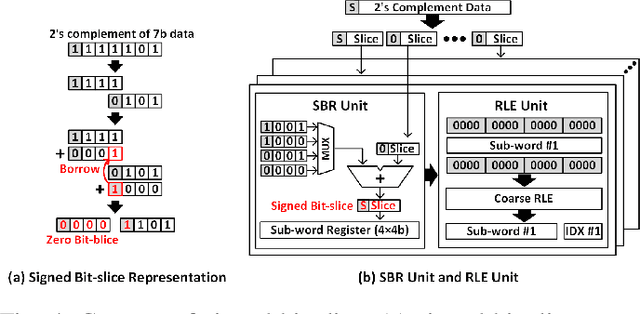
Abstract:As the number of deep neural networks (DNNs) to be executed on a mobile system-on-chip (SoC) increases, the mobile SoC suffers from the real-time DNN acceleration within its limited hardware resources and power budget. Although the previous mobile neural processing units (NPUs) take advantage of low-bit computing and exploitation of the sparsity, it is incapable of accelerating high-precision and dense DNNs. This paper proposes energy-efficient signed bit-slice architecture which accelerates both high-precision and dense DNNs by exploiting a large number of zero values of signed bit-slices. Proposed signed bit-slice representation (SBR) changes signed $1111_{2}$ bit-slice to $0000_{2}$ by borrowing a $1$ value from its lower order of bit-slice. As a result, it generates a large number of zero bit-slices even in dense DNNs. Moreover, it balances the positive and negative values of 2's complement data, allowing bit-slice based output speculation which pre-computes high order of bit-slices and skips the remaining dense low order of bit-slices. The signed bit-slice architecture compresses and skips the zero input signed bit-slices, and the zero skipping unit also supports the output skipping by masking the speculated inputs as zero. Additionally, the heterogeneous network-on-chip (NoC) benefits the exploitation of data reusability and reduction of transmission bandwidth. The paper introduces a specialized instruction set architecture (ISA) and a hierarchical instruction decoder for the control of the signed bit-slice architecture. Finally, the signed bit-slice architecture outperforms the previous bit-slice accelerator, Bit-fusion, over $\times3.65$ higher area-efficiency, $\times3.88$ higher energy-efficiency, and $\times5.35$ higher throughput.
Extension of Direct Feedback Alignment to Convolutional and Recurrent Neural Network for Bio-plausible Deep Learning
Jun 23, 2020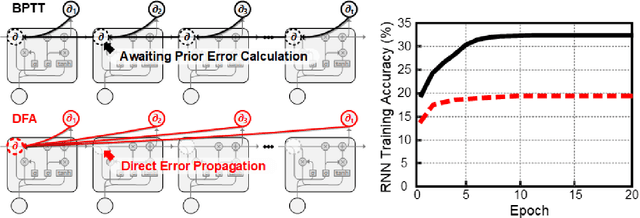
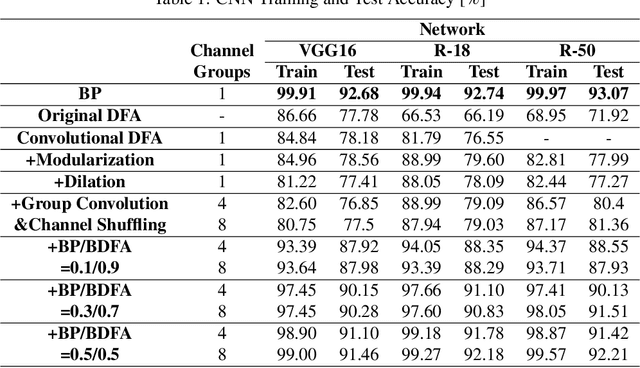
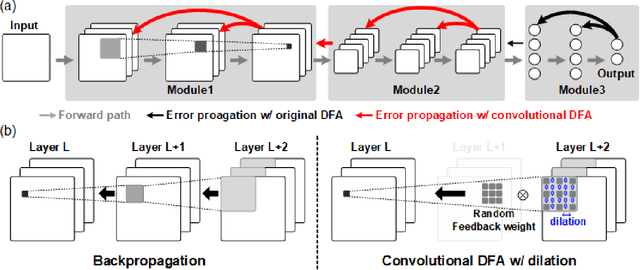

Abstract:Throughout this paper, we focus on the improvement of the direct feedback alignment (DFA) algorithm and extend the usage of the DFA to convolutional and recurrent neural networks (CNNs and RNNs). Even though the DFA algorithm is biologically plausible and has a potential of high-speed training, it has not been considered as the substitute for back-propagation (BP) due to the low accuracy in the CNN and RNN training. In this work, we propose a new DFA algorithm for BP-level accurate CNN and RNN training. Firstly, we divide the network into several modules and apply the DFA algorithm within the module. Second, the DFA with the sparse backward weight is applied. It comes with a form of dilated convolution in the CNN case, and in a form of sparse matrix multiplication in the RNN case. Additionally, the error propagation method of CNN becomes simpler through the group convolution. Finally, hybrid DFA increases the accuracy of the CNN and RNN training to the BP-level while taking advantage of the parallelism and hardware efficiency of the DFA algorithm.
 Add to Chrome
Add to Chrome Add to Firefox
Add to Firefox Add to Edge
Add to Edge